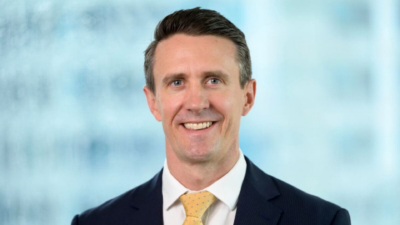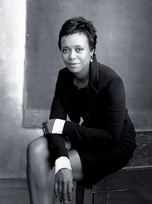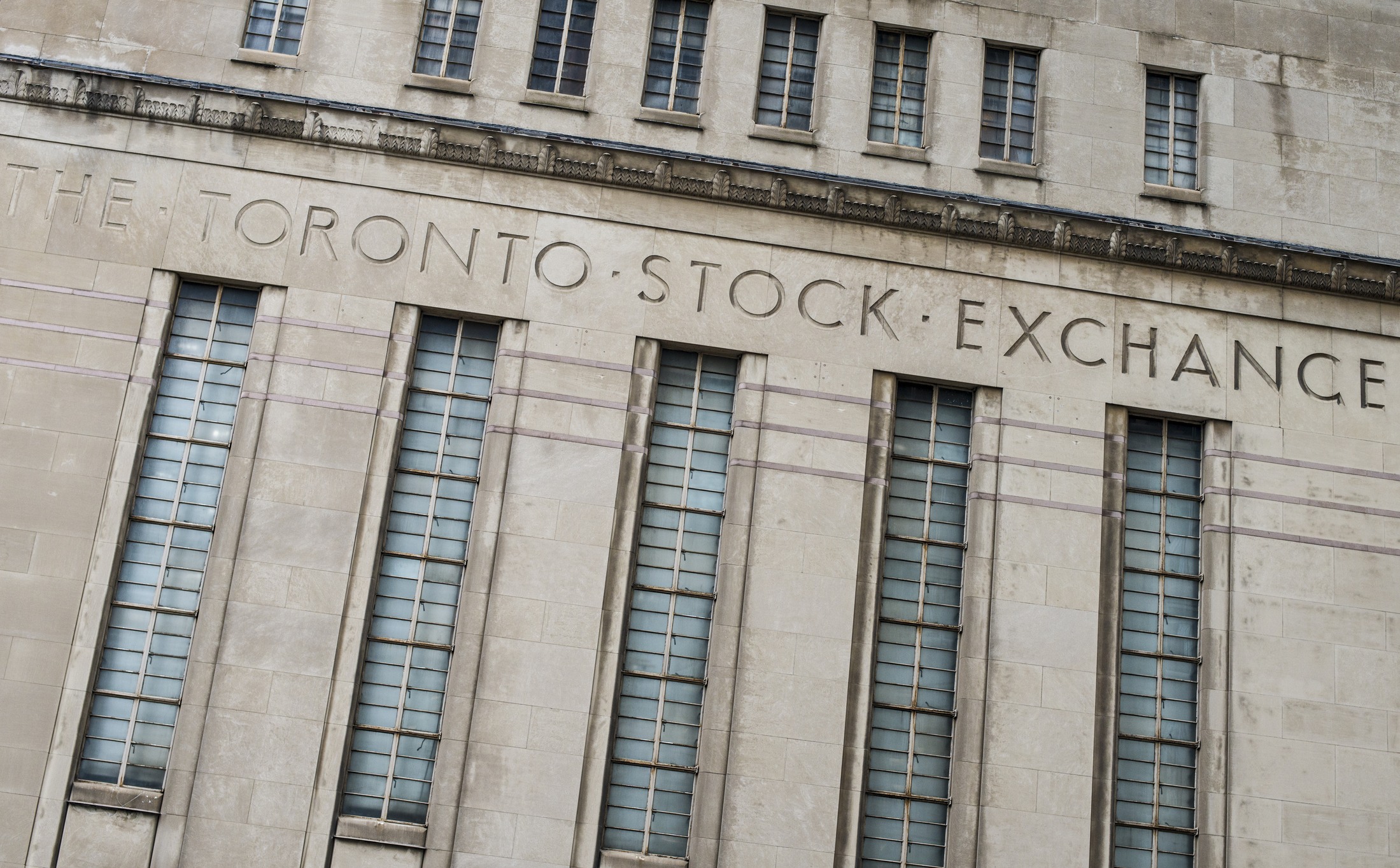Mellody Hobson brings her passion to Australia
(pictured: Mellody Hobson, photographed by Annie Leibovitz for Pirelli)
Not too many fund managers have graced the pages of a Pirelli Calendar, not even the thinking-man’s edition shot by Annie Leibovitz last year. But Mellody Hobson is no ordinary fund manager. And she is speaking this week at the CMSF conference for all to hear. Greg Bright reports from New York.
Hobson is the president of Ariel Investments, a Chicago-based equity shop which she has taken international and global, including opening an Australian office in March last year. It’s an employee-owned firm where she started, as an intern, 25 years ago and one of the few fund management firms where diversity of gender, race and backgrounds actually matters.
Outside of investments, which she describes as her “calling”, as does her chairman, CIO and mentor, Ariel founder John Rogers, Hobson has several passions. At least two of these should strike a chord with the CMSF attendees – diversity and financial literacy. She is also an activist, alongside Rogers, for racial equality, the relief of poverty and fighting injustice, especially in the Chicago area. But more of that later.
Hobson points out, in an interview last week in her firm’s New York office, that diversity, such as gender diversity (but also ethnicity and diversity of backgrounds), has been shown to be an important component of sustainable good performance by organisations, from listed companies to fund managers and pension funds.
She believes that with an estimated 27 per cent women on the boards of our top 40 super funds, Australia is probably ahead of the US in that regard. She applauds the AIST target for member funds’ boards of 40 per cent women by 2017 because in the US, she says, the numbers have remained stagnant.
Among fund managers, though, and at the executive level of most companies, where statistics are more difficult to come by, the gender imbalance is probably greater.
Ariel estimates that nearly 90 per cent of fund managers in the US are white and 75 per cent are men. Hobson says that you need diversity of opinions when you are trying to solve complex problems, which asset managers have to do by trying to find the right companies to invest in. “If you have a group of people who broadly think the same you will end up with a broad outcome.”
She also believes that in the US, as in Australia, on various important committees, such as the investment committee or an organisation’s nominations and governance committee, women are under-represented further still. According to research by Industry Moves, of the 103 women directors of the 40 largest super funds (out of 380 directors in total), only 36 were on their fund’s investment committee.
Hobson says: “The chair of the nomination and governance committee is really important because it sets the agenda for new members. It’s important to have women in that position… I’m sure women are way under-represented on committees in Australia too.”
She is a believer in affirmative action and having targets for organisations to aim for. “But more than quotas, I believe in counting,” she says. “There’s the saying: ‘math has no opinion’. I love that.”
While advocating for equality for women and minorities, Ariel has also made a potentially massive statement in the field of financial literacy. In 1996 Ariel was awarded a corporate sponsorship of a Chicago public school in a poor neighbourhood and set up the Ariel Community Academy. The school offers classes from kindergarten through to eighth grade for 518 students, 98 per cent of whom are African-American and 85 per cent of whom are poor enough to receive subsidized lunches.
A big difference about this school is that the students are taught financial literacy from a very early age. They learn the language of finance, such as percentages, and this has lifted overall math scores.
“We’re socializing the child into another language – the language of finance and investment. And this has a ripple effect,” Hobson says. “It’s not only the children who benefit. They take their homework home and the parents become engaged… It gives the adults permission to learn by association. It’s a backdoor way of teaching parents.”
A former director of the Ariel Education Initiative, Arne Duncan, went on to become the US Secretary of Education from 2009 to earlier this year. As an aside, Duncan played professional basketball in Australia in the 1980s, where he met his future wife, before they returned to Chicago together and had two children.
To try to get everything done that she wants to, Hobson rises as early as 4am most days. She describes the culture at Ariel as like that of a startup: “we’ve only just begun”. She’d like to see assets under management grow from the current US$10 billion to, say, $50 billion but not for the sake of having more assets to manage. “The extra scale will allow us to make more people’s lives better,” she says. “I believe that’s what we’re doing for our investors… There is an endless number of things we can do, as well. We’re going to be doing this for a long time… We have the desire to be great.”
She describes John Rogers, who launched Ariel in 1983, as a true visionary who has always pushed her to be better. “We have different gifts,” she says. Clearly, being a natural communicator is one of hers. “We’re aligned in values, but we complement each other. He is more introverted and I’m extroverted. We are like a brother and sister,” she says.
He also encouraged her to have her own vision even though she had seen herself mainly as an implementor initially. For instance, she led the expansion into international (ex-US) equities and then a global equities strategy, and opening the Sydney office, all of which Rogers agreed to without even asking what it was going to cost.
“He told me that you have to make other people successful. He said he knew that I would always be OK, so my goal should be to help others.”
Recently, the latest list of the “Fifty Most Influentual Chicagoans”, published annually by ‘Chicago’ magazine, ranked Hobson at number 18. This might not be such a surprise, except that she beat both her famous husband, filmmaker George Lucas, who was ranked number 20, and also her chairman and mentor, John Rogers, who was ranked 37.
At CMSF, in Adelaide from March 16-18, Hobson will be interviewed by journalist Ellen Fanning about diversity, financial literacy and the markets, she says. We’re betting the markets don’t get much of a look in during that conversation.










